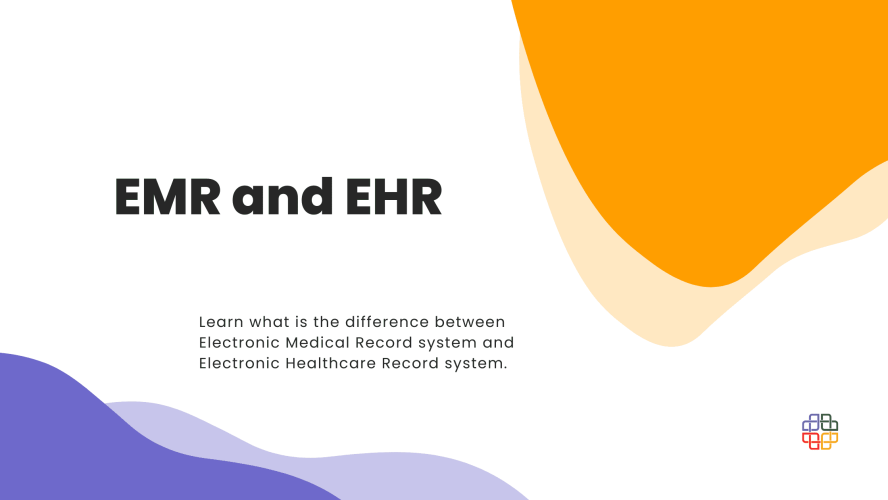While searching through healthcare-centered softwares products you might have come across some mysterious shortcuts. Two of them, EMR and EHR, we would like to explain in this short article. They sound similar and are easy to confuse. To make it easier for you we will clarify the difference between these two terms.
EMR
EMR stands for Electronic Medical Record. It is a software that allows clinics and hospitals to collect, store and manage their patients’ medical records in a digital form. EMRs are a great modern alternative to traditional paper records. They are easy to access, fast to search through, they also do not take so much physical space. EMRs improve the integrity of health data, providing medical workers with complex information on every patient, including their treatment history, diagnoses, test results, medications, appointment history, etc.
The benefits of using an EMR system:
- saved time;
- saved costs;
- upgraded charts;
- reduced paperwork;
- reduced errors;
- improved quality of care;
- increased efficiency and safety.
EHR
EHR stands for Electronic Healthcare Record. It provides users with a broad collection of patients’ health data, connecting information from different healthcare facilities, and creating a complex overview of each patient’s medical history. It greatly improves the level of care being provided, because physicians can base their examination and diagnosis on a wider context of patients’ overall health, including records from clinics, hospitals, laboratories, etc. Thanks to EHR software, health data can be collected and managed even across countries’ borders.
Due to the similar nature of these two types of softwares, EMR and EHR systems’ features are partly overlapping. However, there are a few things that can be added to the list of EHR benefits:
- access to real-time information about the patient’s condition (including illnesses, allergies, etc.) gathered from many facilities;
- access to patients’ portal – users can view appointments history, test results, etc.;
- lab results, notes, and radiology images being immediately sent into the system;
- all notes from patient’s visits or longer stays in hospitals being visible to other clinicians – it helps specialists conduct successful treatments that are integral with other health departments.
EMR vs. EHR – what is the difference?
Obviously, one letter. But does this one letter change anything? Well, in general, EHR has a wider scope of action than EMR. It uses data from many sources to create a complete portrayal of a patient’s medical history.
What can both of these systems give you?
- Reduction of the number of medical errors, thanks to the fast, accurate and updated database.
- More complete and clear patient’s charts.
- Reduction of duplicate testing, thanks to exchange of information. It means saving both patients’ and care providers’ time, money and trouble.
- Safer and more reliable process of prescribing medication, thanks to the improved access to information.
- More patients being encouraged to use preventative care, thanks to the information provided to them on patients’ portal.
- More accurate diagnoses resulting from more complete health data.
Sources:
EMR vs EHR – What is the Difference?
EHR (electronic health record) vs. EMR (electronic medical record)
More articles on EMR systems:
How To Digitize Your Medical Records?
How To Choose The Right EMR System For You?
How To Use An EMR Without Internet Connection?
How Long Does It Take To Implement An EMR System?




